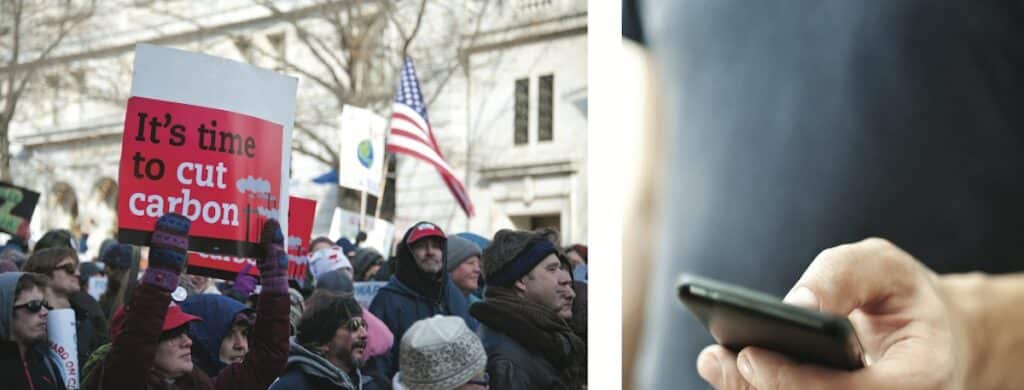A new survey on Americans’ climate communication behaviors from researchers at Yale and George Mason University discovers the power that peers have on our willingness to act on climate change.
WHY YOU SHOULD TAKE A LOOK:
The survey found that family and friends have the greatest ability to convince individuals to take action to reduce climate change.
KEY TAKEAWAYS:
Influence of friends and family
One in three Americans say they discuss global warming at least occasionally with friends or family (down 8% since 2008).
Americans are most likely to identify their own friends and family, such as a significant other (27%), son or daughter (21%), or close friend (17%), as the people who could motivate them to take action to reduce global warming.

Who can convince Americans to take action?
If asked by a person they “like and respect”, the actions that Americans are most willing to take are signing a petition, attending a public meeting, or attending a neighborhood meeting about global warming.
Public communication
Fewer than 8% of Americans communicated publically about global warming in the past 12 months (e.g., online or in the media)
Communicating with government officials
One in ten Americans wrote letters, emailed, or phoned a government official about global warming in the past 12 months.
Talking about extreme weather
Americans who experienced an extreme weather event in the past year were most likely to talk to others about it face-to-face or by phone, while few did so using social media.
Non-violent civil disobedience
24% of Americans would support an organization that engaged in non-violent civil disobedience (and 13% say that would be willing to personally engage in non-violent civil disobedience) against corporate or government activities that make global warming worse.



